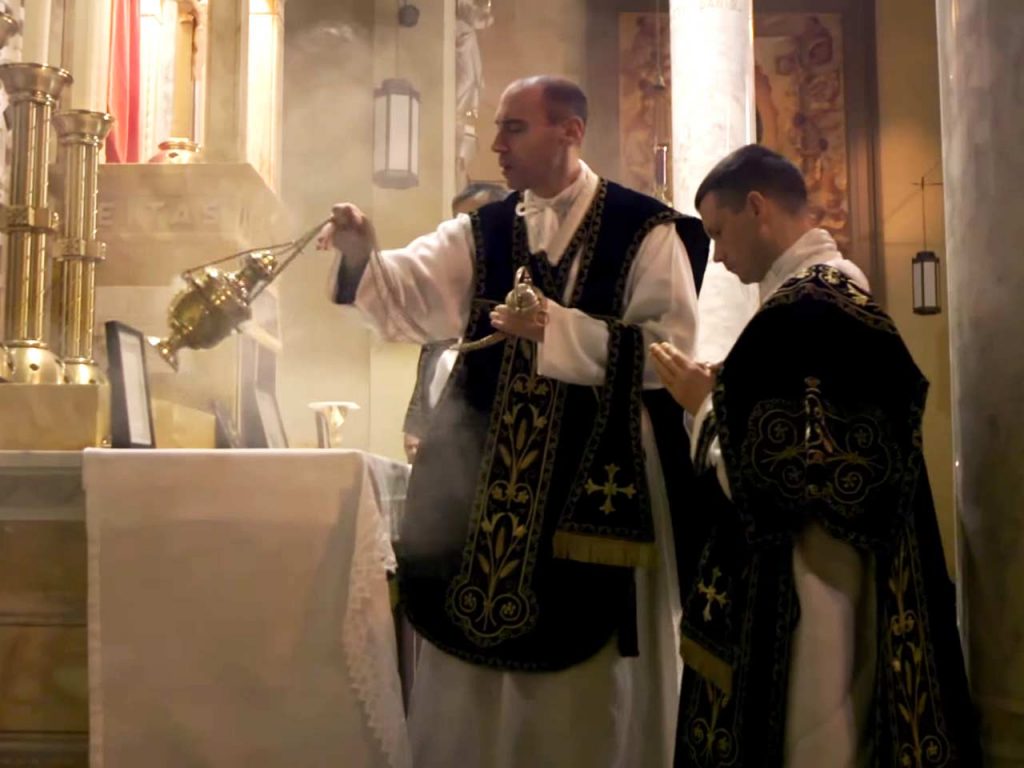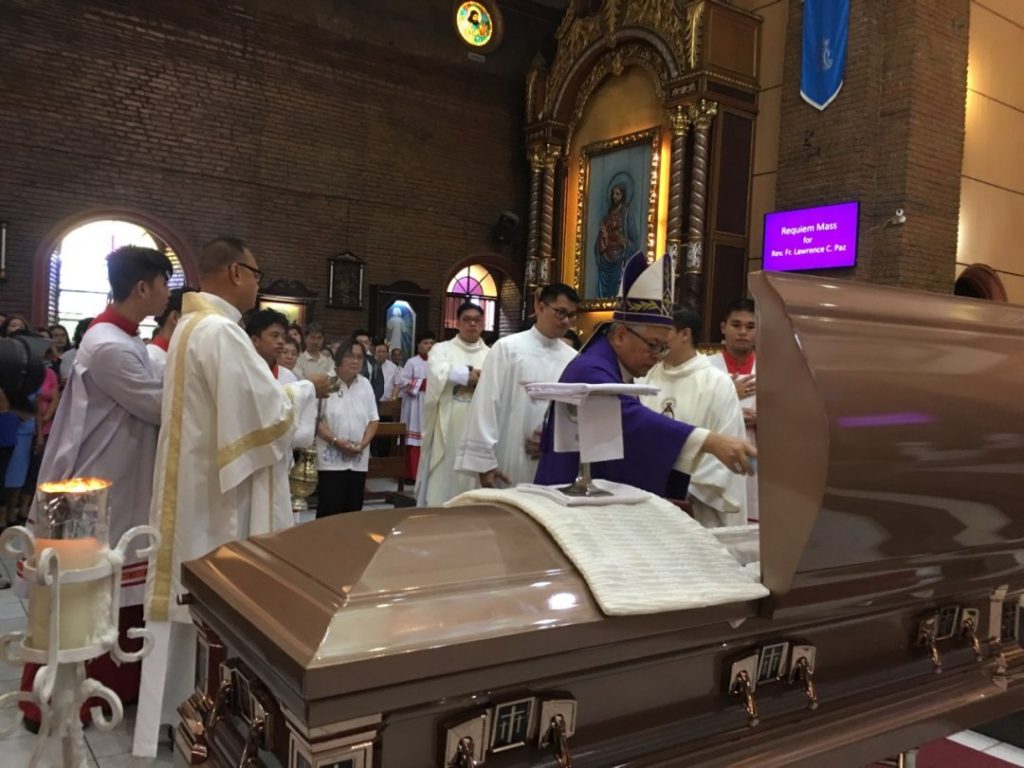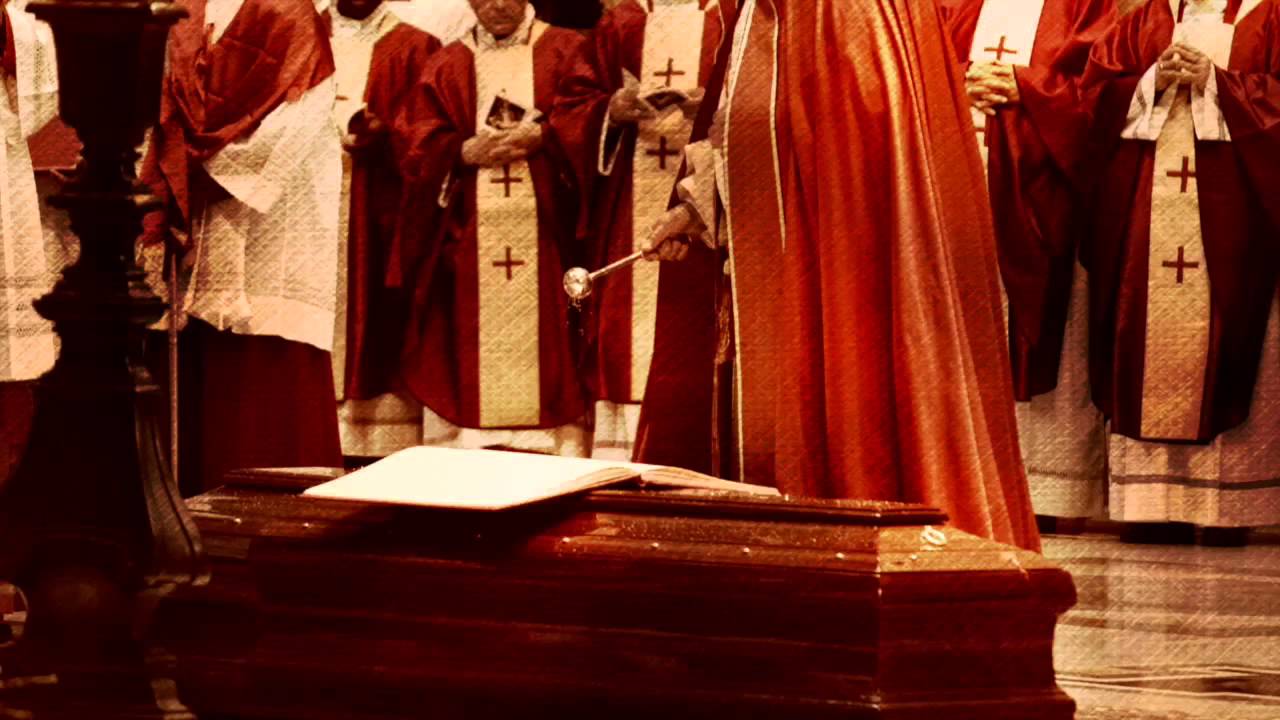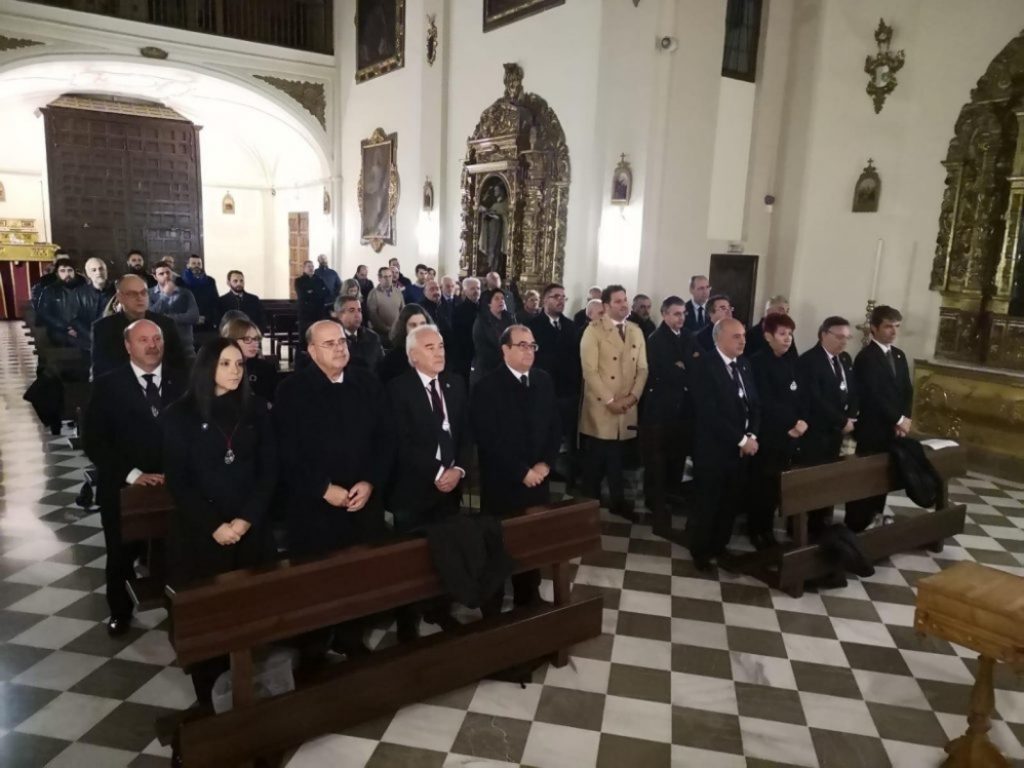The physical departure of a loved one always generates pain and sadness, however it is a situation that we are all going to experience at some point in our lives. There will always come that moment when we have to say goodbye to a loved one. Now, can we recover from his physical absence? If possible through the petitions for the deceased.
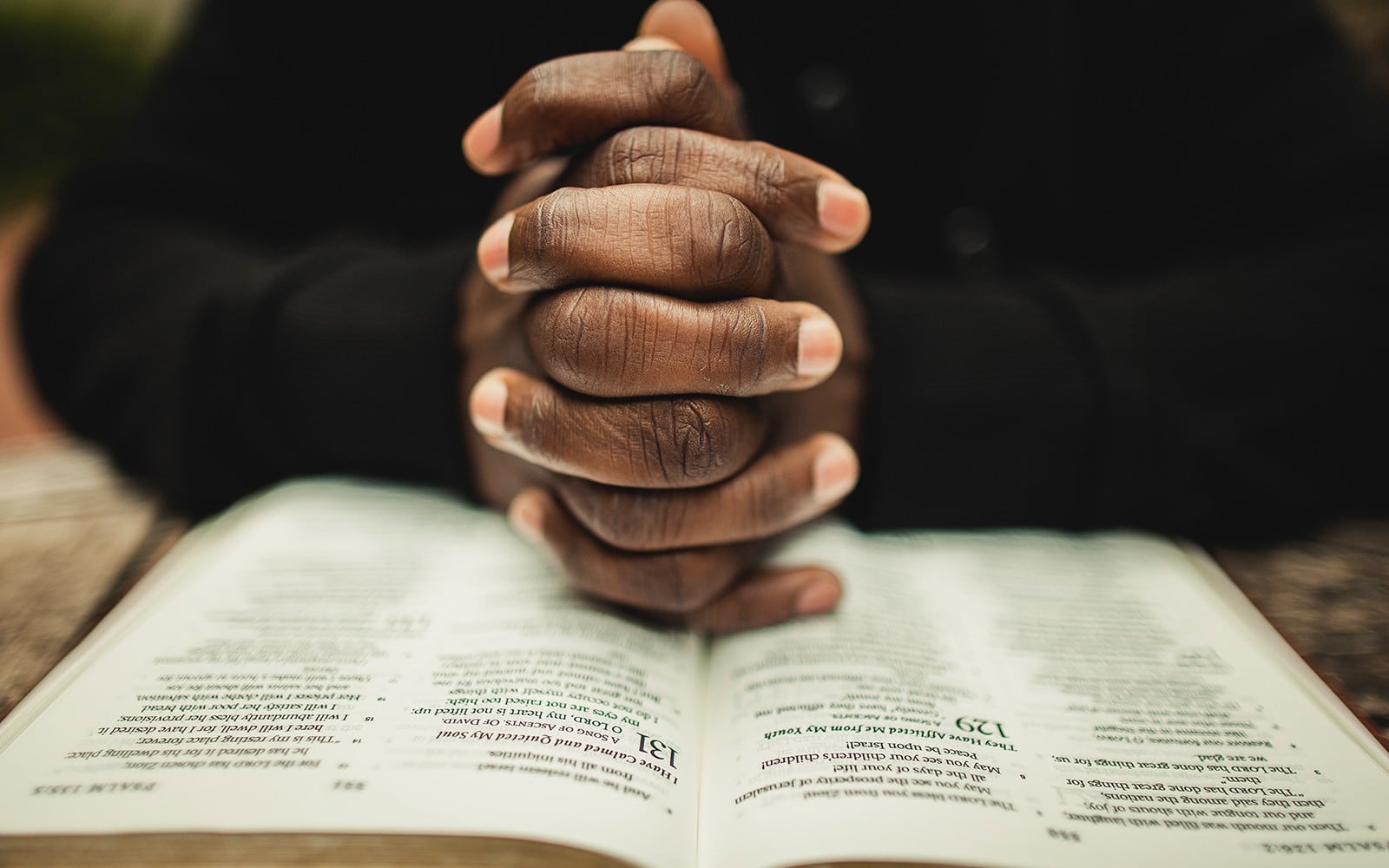
Have you heard of petitions for the deceased? If not, don't worry. In the following article we are going to explain everything you need to know regarding this type of prayers that are carried out during the celebration of the Holy Mass and that manage to mitigate the deep sadness caused by the physical departure of a loved one.
What are petitions for the deceased?
Petitions for the deceased is one of the most symbolic and representative prayers that are made in honor of a person who has physically departed from this earthly plane. This type of prayer is also known as the memorial mass for the dead,
The main purpose of the petitions for the deceased is to pray for the eternal rest of those people who have died, as well as to give tranquility and offer peace to the spirit of the deceased and even to the relatives who feel the terrible pain for the death. loss of your loved one.
These prayers and the rest of what makes up this mass for the petitions of the deceased are represented by the commemoration of the word. Another important aspect that must be taken into account in relation to petitions for the deceased is that it must be directed within a pastoral formalism.
It is not necessary that those present at the mass have known the deceased or have had a direct relationship with the person who has gone to heaven. The most important thing that is intended with the petitions for the deceased is to really feel in your heart that these prayers will reach and calm the spirit of your loved one.
Carrying out a mass in honor of the deceased is not very complicated. The most advisable thing in these cases is that the ceremony is not so long, but as precise as possible. Possibly you should organize an itinerary where each family member can carry her requests in an orderly manner.
Steps to perform the mass for the deceased
The mass for the deceased is one of the most emotional ceremonies because it remembers that loved one who has physically left this earthly plane to meet God. Like all other masses that are known, the mass for the petitions of the deceased is made up of different elements.
A mass of these characteristics must have a series of important aspects so that in the end we have a beautiful and memorial ceremony for the deceased. Here we explain the step by step of how to perform a mass for the deceased:
introductory statement
One of the first things that should be done during the mass for the dead is the introductory address. It corresponds to those words of welcome that are given to each of those present. It is passed to welcome and a few words with spiritual meaning of the mass that is about to begin. An example could be:
“Brothers, friends and family, on this occasion we gather before the death of (name of the deceased). Filled with deep pain, sadness and surprise at his inevitable departure to the other earthly plane. This celebration has the purpose of filling all your family and friends with the purest and most sincere feelings, so that they can have a lot of peace and above all a lot of faith…”
Initial greeting
After offering the words of welcome to each of the faithful and relatives of the deceased person, the next step is to dedicate a few words of introductory greeting. With these words you will be ready to begin the ceremony of petitions for the deceased. An example could be:
“May the grace, both peace and good consolation of God our Father and creator, of Jesus Christ the Lord and the communion of the Holy Spirit, lead (name of the deceased) to eternal life on his way. Also may he always accompany all of you. And with your spirit. Amen"
Ask for forgiveness
During this part of the celebration, the faithful and relatives of the deceased must proceed to redeem themselves with a prayer of forgiveness before God. It goes as follows with the words of the celebrant:
“The Messiah expresses to us in his gospel that from the fruits that we sow in the spring of our lives, the creations for tomorrow will emerge. If we plant the good, the Almighty will be on our side when it comes to judging us. And even if things haven't gone so well, he will absolve us."
Prayer to the Lord
The next step to follow corresponds to the prayer to our Lord. This prayer must be done with great faith and confidence that God the Father will hear our prayers and bring peace to hearts afflicted by the death of that loved one.
psalm of hope
The celebration of the mass in honor of the deceased continues with the recitation of Psalm 23, which consists of expressing trust, faith and the infinite goodness that is the great power of God. This psalm reflects the deep love that God feels for his children even in those moments of pain that we go through. Beyond death, he will always be our greatest refuge and strength.
prayer for the deceased
It could be said that it is at this moment that the celebration of the mass in honor of the deceased begins formally. The faithful make a prayer to ask that the soul of the person who has departed can rest in peace and access eternal life through the forgiveness of their sins. The prayer can begin as follows:
"Lord, Holy and Good Father, almighty and eternal God, we humbly pray for your servant, whom you hailed from this world to your presence, deign to take him to the place of rest, of light and of peace..."
Prayer for those who mourn the death of the deceased
The person in charge of leading the mass communicates to the other faithful and relatives that the time has come to raise a prayer for ourselves. During these minutes we ask God to give us strength and peace in the midst of the difficult time we are going through. The sentence starts like this:
“Oh merciful Father, my dear God, who comforts everything, and who also defends us at all times with your extraordinary love. In order to convert the gloom, which concerns death, into a dawn full of life. Be it then that you look at us, at us who are your children, and at those who are imploring in this mortification. Become our shelter and our strength…”
community prayer
It is one of the most beautiful moments within the celebration of the Holy Mass for the deceased. Here we put our differences aside and unite as brothers, children of God and family of the Kingdom to ask in the same direction. We pray for the Holy Church, for the peace of the universe, for our forgiveness and salvation, for the deceased and for ourselves.
Each of these requests the faithful will respond “we ask you, Lord”. An example of this could be:
“All united as children of God, as a family that remains well united. So let's go, brothers, to pray like this together. We will petition not only for ourselves and for our brother (name of the deceased), but also for the whole Holy Church, for the peace of the world and for our salvation. We ask you sir. Amen.
Bible readings
In this part we proceed to carry out before the biblical readings a warning to the reading of the word of God. The intention is to motivate the faithful and relatives of the deceased to receive with faith every word from the Lord. The ultimate goal is for attendees to prepare their hearts to be transformed by the great power of God.
The first Bible reading
The first biblical reading that should be done corresponds to the Old Testament. The most advisable thing in these cases is to select a fragment of the Bible that is related to the deceased. Almost always the priest chooses one who predicts the words of our Lord Jesus Christ.
second bible reading
The second biblical reading must also be related to some fragment of the Bible that refers to the deceased. The book of Job could be chosen, in the old testament, where he prays the following:
“A voice from heaven said to me: write this, happy from now on are the dead who have died in the Lord. Yes, says the Spirit, may they rest from their martyrdom, because their compassionate labors accompany them. It is the word of God” and the faithful will respond: we ask you, Lord.
third bible reading
For the third biblical reading, a fragment of the book of wisdom could be taken. In it the word of the life of the good ones who already had the longed-for encounter with God is proclaimed.
fourth bible reading
The celebration of the mass of petitions for the deceased continues with a fourth biblical reading. In this case, a fragment of the book of wisdom could also be taken, where reference is made to those good people who have had to leave this plane, but even so, they will enjoy eternal rest.
Fifth Bible reading
For the fifth biblical reading, a fragment of the book of wisdom could also be taken as a reference, especially a word addressed above all to the deceased youth.
Sixth Bible reading
In the sixth biblical reading, the book of Maccabees is taken as a reference, where descriptions of the New Testament are outlined, such as:
"In those days, Judas, the chief of Israel, made a collection and sent the collected to the temple of Jerusalem, so that a sacrifice was offered for the dead, acting with great integrity and aristocracy, thinking of the resurrection..."
Other Bible readings
After having carried out each of the biblical readings described above, the celebration of the mass of petitions for the dead should continue. On this occasion, readings from the New Testament should be performed.
This is because this part of the mass has variations compared to traditional celebrations in terms of reading the word of God. Knowing this, what you should do now is choose one of the verses that relate this part of the Mass with the love that can be expressed towards Jesus.
- First reading: Letter of Saint Paul to the Philippians
- Second reading: Letter of Saint Paul to the Romans
- Third reading: Letter of Saint Paul to the Ephesians
- Fourth reading: Letter of Saint Paul to the Thessalonians
responsorial psalms
At the end of the biblical readings, the responsorial psalms are read. The purpose of these psalms is to bring peace to the souls of the deceased and to calm the emotions of the disconsolate. Through these psalms we seek to receive more of the Lord's peace and find tranquility despite the storm we are experiencing after the death of a loved one.
Gospels
The celebration of the Mass continues with the evocation of the Gospels. These books of the Bible clearly narrate the life and work carried out by our Lord Jesus Christ when he was on Earth. Before beginning the reading of some fragments of these gospels, a brief introduction to the topic is made:
“It has been offered, the Resurrection and the life, together with the life with the Lord, when we have the participation in the banquet that it represents, the body and the blood. Fulfilling the commandment of Love and services to others”.
Homily
This step is not always done. Everything depends on the priest who leads the celebration, as some people consider that they are not suitable for this type of mass in commemoration of petitions for the deceased. Usually the homily is accompanied by songs at mass ending with the phrase: "Let us pray to the Lord" and the attendees respond: "We ask you Lord."
Intercessions
The celebration of the mass in honor of the petitions for the deceased continues with a prayer to the faithful. With great faith you must recite the following words:
“Today we remember with much affection, all our brothers and relatives, as well as our friends, who have already left this earthly plane. We protect ourselves therefore in the living illusion that we will meet one day in the house of our Almighty Lord.
That is why today we ask my God for (name of the deceased), who is your son and also our friend. Which left this world, so that he lives in your Kingdom full of all love and Peace. We ask you Lord.
Also for all those who leave this world in exile, being left behind by the love that their loved ones should have offered. So that they never feel the abandonment of the Enlightened One. Let us pray to the Lord.
In the same way, for those who are suffering from a long illness, so that they always have friendly help. And that, in an affectionate way, they offer them help and the relief they need. Let us pray to the Lord."
prayers in the form of litanies
This is a prayer that the faithful in company with the priest must perform full of faith in God.
“God, have mercy on us (repeats twice). Jesus, have mercy on us (also repeated twice) God, have mercy on us, You who turned water into wine. God, have mercy on us. You who calmed the storm of the angry sea. God, have mercy on us. You who sobbed at the tomb of your friend Lazarus…”
Our Father Prayer
In this part of the mass, the priest asks the faithful and relatives present in the place to recite the prayer taught by Jesus. People join hands and together they pray "Our Fathers, who art in heaven." While praying, the priest will sprinkle the urn with holy water.
final blessing
The mass in honor of petitions for the deceased is coming to an end. Before that, a prayer should be made to bless those relatives and friends who have passed away. The following words are repeated:
“Give them, God, the deserved rest and may perpetual light shine for them. May the spirits of the faithful deceased, by the compassion of the Almighty, rest in peace. The blessing of almighty God be with our deceased brother and always remain with all of you and with his spirit. In the name of the Father, the Son, and the Holy Spirit. Amen".
Hen&Stag
The mass in honor of the petitions for the deceased has ended. The priest must address a few words thanking the relatives of the deceased and giving them God's blessing for having shared that moment of sadness.
Christian reflections on death
Finally, the priest can choose a text that is related to the petitions for the deceased. This step is added to the liking of the religious, that is, it is not mandatory. One could select the Prefaces of the Roman Missal, which quote the following:
“The life of those who believe in you, God, does not end, but changes. By disrupting our refuge on earth, we are gifted a residence in paradise. Your will, My God, gave us life and your orders govern it. Sin restores us to the land from which we were founded…”
You might also be interested in the following articles:
